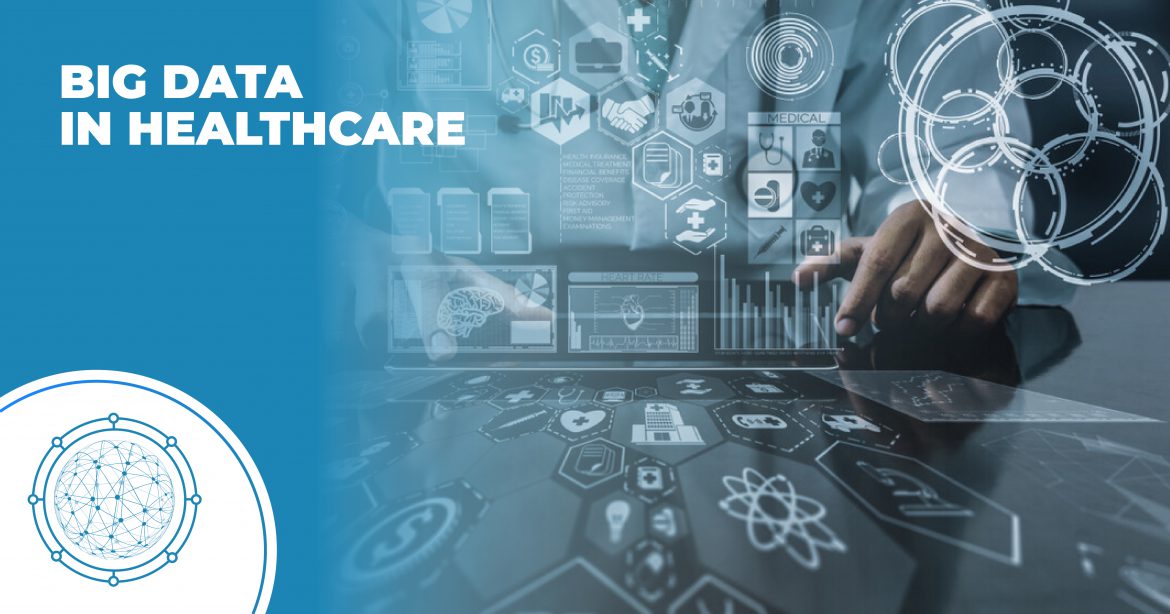Big Data in Healthcare refers to the collection, analysis, and leverage of consumer, patient, physiological, and medical data that is too large or complex to be understood by conventional methods of data processing. Instead, big data is often processed by machine learning techniques and data analysts.
The growth of big data in healthcare came as a response to the digitalization of healthcare information and increased in value-based care. That allowed the sector to make strategic business decisions using data analytics. Addressing healthcare information challenges such as scale, speed, variability, and veracity, health systems need to implement technologies that can capture, store, and analyze healthcare data to provide meaningful data.
Table of Contents
Big data in healthcare 2023
Benefits of Big Data in Healthcare
- Create a complete, 360-degree view of clients, patients, and doctors.
- Advance level of care personalization and effectiveness with complete patient reports.
- Find geographic marketplaces with a high potential for evolution.
- Improve healthcare promoting efforts with data about consumer, patient, and doctor needs and preferences.
- Offer simple recognition patterns in health results, patient approval, and hospital development.
- Improve hospital progress by advancing care effectiveness, efficiency, and personalization.
The impact of Big data in healthcare
Big data has a more significant effect on healthcare. Owing to three significant developments in the healthcare sector, the vast amount of data available, increasing healthcare costs, and an emphasis on consumerism. Big data makes it possible for healthcare systems to turn these barriers into opportunities for personalized patient experiences and quality care.
Increasing Health Care Data
The scale of virtual data health systems expanded rapidly with the digitalization of health records. Besides EHRs, a lot of data is collected in other ways-through wearable devices, mobile apps, digital marketing campaigns, social media, and much more. All this leads to an enormous amount of knowledge, enabling health systems to implement big data systems and technology for collecting, processing, and leveraging expertise.
Growing healthcare costs:
Healthcare prices have risen steadily in the United States in the last 20 years. Healthcare expenses currently account for about 18 percent of GDP, a total of around $3.4 trillion. This is due in part to factors related to lifestyle, as well as government legislation. Healthcare companies can consider quantifiable ways to enhance results and productivity by gathering and analyzing vast quantities of data. This increases customer loyalty and the ability to gain a larger market share.
The desire for Personalized Care
Consumers in all sectors demand an excellent, natural, personalized service-a trend encountered by “The Amazon Experience” executives in the retail industry. Healthcare is not all the same. Customers deserve easy, personalized treatment, a new level to which healthcare systems will grow. This new care model focuses on efficiency, attendance, and retention. Health systems switch to big data on healthcare to provide the information required to achieve this level of personalization.
Challenges Facing Big Data in Healthcare
Sorting and prioritizing details is a big problem for vast data related to health care. Data capability is so enormous that it is often hard to decide which points of data and observations are useful. As a result, many organizations are using AI or machine learning to exceptionally agile process this data.
Another challenge is to ensure sufficient access to big data information and analysis for the right people so that they can work smartly. Although healthcare data are derived from several different systems, companies need to ensure robust access to information for sensitive information across the industry.
There are also a lot of challenges in data analysis resulting from or missing data on heterogeneous arguments. Data sophistication exacerbates all healthcare organizations that file claims with data from other healthcare sector information systems (HIS), or hospital staff input at the time of the relationship. By factoring in all walking places or forms of facilities, the specifics get much more complicated. Consequently, having correct data on claims poses five challenges:
Billing systems are broken down and dated
Data is always “noisy”-it may be incompatible with procedures, classes, and even specialties on the service line. The goal is to analyze advice data alongside your knowledge of the local market; that is, data will add to physician-focused experiences and outreach, rather than a substitute.
Diagnosis and procedure codes can be vague
Also, industry-standard grouping objects can mask or map medical operations. It’s tough to get ideal data and ideal insights, so you need to help and find a way to work with directional data.
Future of Big Data in Healthcare
Healthcare companies, as it becomes more important to progress, should take big data in more significant numbers in the future. Big Data in Healthcare will continue to support better and more streamlined marketing touchpoints. Moreover, as digital technology and the Internet of Things (IoT) becomes mainstream, the amount of data available will be that. Continuous monitoring of patients will be standard through wearable technology and IoT and will send vast amounts of information to big data stores. With this information, healthcare providers can integrate a vast number of insights into healthcare to find and retain patients with the highest service propensity.
High-Tech Magazine: Stay updated
Did you like the article about Big Data in Healthcare? You may also be interested in “Machine Learning in Healthcare”
Artificial Intelligence in Healthcare





